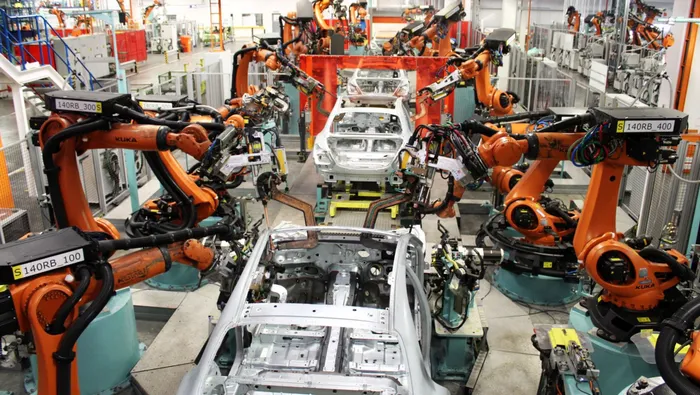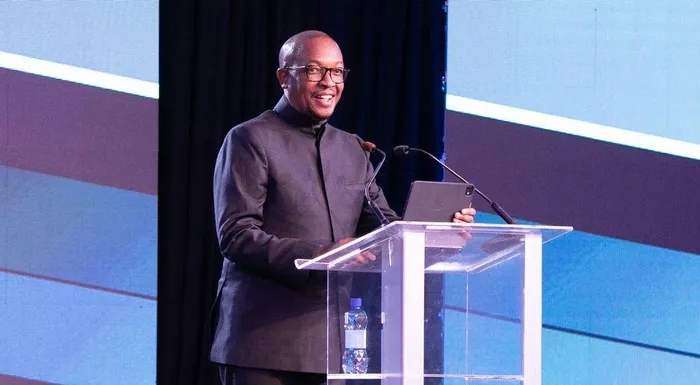
Deindustrialisation remains a major threat to the South African vehicle manufacturing industry.
Image: Supplied
South Africa’s automotive manufacturing industry is facing an existential crisis as affordable imports from India and China flood the market and export contracts come under threat.
Although the imposition of US tariffs only affects Mercedes-Benz at present, this is expected to take a significant toll on that company, while elsewhere in the industry, a gradual deindustrialisation is eroding local output.
While industry leaders such as Toyota SA CEO Andrew Kirby have previously sounded the warning bells about industrial decline, the Minister of Trade, Industry and Competition, Parks Tau, added to the chorus this week when he stated that the abovementioned pressures have resulted in 12 component company closures and over 4,000 job losses in the last two years.
Speaking at an industry showcase held by the National Association of Automotive Component and Allied Manufacturers (Naacam) on Wednesday, Tau stated that local vehicle production, at 515,850 units in 2024, was far below the Automotive Masterplan 2035 target of 784,509.
Equally worrying is that local content for vehicle production remains stagnant at 39%, well below the 64% target.
Imports remain a threat, as just 37% of the vehicles that South Africans purchase are locally produced, according to Lightstone, while 36% are sourced from India and 11% from China.

Minister Parks Tau said his department was currently reviewing the APDP incentive programme.
Image: Supplied
“Localisation is not merely policy compliance - it is existential. A 5% increase in local content would unlock R30 billion in new procurement, dwarfing the R4.4 billion US export market. To achieve this, we must act collectively to address some of the bottlenecks to growth,” Tau said.
He revealed that the Department of Trade, Industry and Competition (DTIC) was reviewing the current Automotive Production Development Programme (APDP) as a comprehensive way of responding to the sector's challenges.
Among these reforms would be shifting the duty credit incentive structure to place a greater emphasis on rewarding full manufacture, rather than just assembly.
The government is also planning to incentivise electric vehicle (EV) and battery manufacturing. As announced earlier this year, carmakers will be able to claim a 150% tax deduction on investments related to EV production. The government is also considering adding locally mined minerals to the list of Items that qualify as local content under the APDP.
In addition, a comprehensive skills gap analysis has been completed, resulting in EV-specific curricula and certification programmes now being developed in conjunction with numerous universities.
The Minister said the government was also working hard to eliminate compliance burdens and reduce the red tape currently inhibiting investment into the auto sector. This includes a General Laws Amendment Bill that aims to fast-track high-impact investments and projects within 90 days.
However, when it comes to protecting the local manufacturing industry from a flood of affordable imports, it appears the DTIC is not in favour of punitive measures such as tariffs. This is in spite of widespread calls for this, including from manufacturers such as BMW SA and industry organisations.
Speaking at a separate event held on Tuesday, in response to Trump’s tariff imposition, Tau said:
“With regards to Chinese and Indian auto, it is a discussion that we’re currently having with the intention of taking a less punitive approach, but rather taking a more proactive approach of getting some of those products manufactured in the country.”
“So we're not holding the stick as a starting point. We start with the carrot and then balance it with the stick," Tau added.
He said many Chinese manufacturers had expressed interest in establishing themselves in the country and were making contributions towards the revised APDP programme. His department was also planning to engage with Suzuki Auto, a full importer that is currently the second best-selling vehicle brand in the country.
ALSO READ: Will Suzuki build cars in SA? Minister Tau engaging with carmaker as tariff debate rages
Naacam CEO Renai Moothilal believes government should consider higher tariffs as a protection mechanism for the local manufacturing industry:
“There is space in the sector to increase tariffs on vehicles and components used in Assembly,” Moothilal told News24.
“We are seeing other countries in the world do this, and if you look here, the domestic market has become increasingly eroded.
“Goodyear (which shut its Qgeberha plant recently) is a good example of the challenges of cheaper tyre imports into the South African market, because it made them unsustainable. There is a definite need to relook at our domestic tariffs,” Moothilal added.
IOL Motoring
Related Topics: